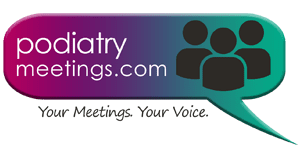AXE SOME TRADITIONAL LECTURES
This month, I provided the following two articles in the DPM Newsletter; you may have received it if you have chosen to be on our DPM Newsletter Send List. 🙂
Why am I copying/pasting? Well… consider these thoughts and concepts as you put together your agenda for next year. If you want to make a more meaningful impact, go back to the drawing board of your scientific content and get creative in the ways you can incorporate more demonstrations, discussions and hands-on experiences.DPM JULY NEWSLETTER ARTICLE ONE
Honing Your Skills
Teaching Does a Dr. Good
I’ve been lucky enough this summer to get away from my desk for a few hours each week and hit the golf course; and this year is particularly more enjoyable as there has been a noticeable improvement in my game compared to my first few years playing. One of the key success factors to my enhanced skill level, in my opinion, is that I have been helping teach one of my friends (a total golf beginner) some of the game’s basics.
It got me thinking about how, (before I injured my knee and could move around the tennis court), that when I started teaching tennis lessons several years ago, certain elements of my game improved.
Then, I reflected on how some of the most memorable principles and/or theories that I can discuss more coherently than others from my college education are those that I was forced to teach to others.
There has to be something to this, right? OH YEAH! (Kool-Aid Man Style)
Below is the Learning Pyramid created by the National Training Laboratory which showcases that when we teach others, we retain 90% of the information (vs. 5% from learning from a lecture).
So, how can you use this for your personal educational growth and/or how can you use this concept to make your team stronger? START TEACHING!
As a physician, there are countless ways to get involved in teaching; below are some examples:
Network to get on the podium at a CPME event in your area of expertise (i.e. sports medicine, DFUs, billing/coding, biomechanics, forefoot surgery, etc).
Provide a webinar for one of your suppliers as a brand champion (i.e. orthotics, lasers, shockwave, antifungals, etc.)
Provide community education with short videos online; or sign up to speak at a local health fair
Become involved in a continued learning organization (i.e. ACFAS, ACPM, ASPS, AMIFAS, ACFAP, etc). where you will be able to access opportunities to teach within the organization and at their events.
A few years ago, I wrote a short article titled: Take the Podium and Become an Expert in the Eyes of Your Peers and Patients. Check it out! Make sure you click on the slides for the “meat.”
Use this concept to grow the talents of your team. For example if you have a staff member that is particularly skilled in aesthetics, have them train/teach another team member who will then take the knowledge and train/teach another team member… and so on. You could make this a monthly activity: TUESDAY TEAM TRAINING.
Coincidentally, I learned from Dr. David Zuckerman a few years ago that the word “doctor” means “teacher.” Something I suppose shouldn’t be too surprising, but I hadn’t previously known the word’s etymology. Here’s a little reference for you: https://journals.lww.com/academicmedicine/citation/2001/07000/doctor_means_teacher.13.aspx
DPM JULY NEWSLETTER ARTICLE TWO
Choose What Works
Retention & Meeting Styles
The article above details the ways in which we are most likely to retain information – with the best way being by teaching. But, we’re not always in the teaching position…
This should become a key consideration when you choose the meetings you attend. I’ve written several articles about how it makes the most sense to invest in meetings that align with your passion (i.e. if you LOVE pediatrics, then you should go to ACFAP.)
Considering the Learning Pyramid from the National Training Laboratory, it’s troubling to recognize that most CME events are falling into the lowest category of retention: LECTURE (5%). If you’re not in the driver’s seat (at the podium), then attempt to be strategic in your meeting decisions so that your learning experience will place you in an environment where there will be opportunities for DEMONSTRATION (30% retention), DISCUSSION (50% retention), DOING (75% retention).
With these percentages in mind, it would make sense, then, to seek out hands-on experiences. Use our calendar of events to find them; or let me do the work for you! Use the links below for some upcoming (within the next 90 days) meetings that have a hands-on element (note this is not an exhaustive list of meetings with a hands-on approach).
ACFAS Arthroscopy of the Foot & Ankle Course | Rosemont, IL | 8/17-19
IFAF: Ankle Arthroscopy Course | Englewood, CO | 8/22-24
OSET Orthopaedic Summit | Las Vegas, NV | 9/14-18
ACFAP | Palm Springs, CA | 9/26-28
ACPPS Cadaver Lab Workshop | Chicago, IL | 9/28-29
MIS Cadaver Lab Masters Course | New Orleans, LA | 10/11-12
Fundamental Peripheral Nerve Repair Course – AENS | Key West, FL | 10/31-11/1
Thoughts? Questions? Email Me!
Sarah Breymeier: beheard@podiatrymeetings.com

